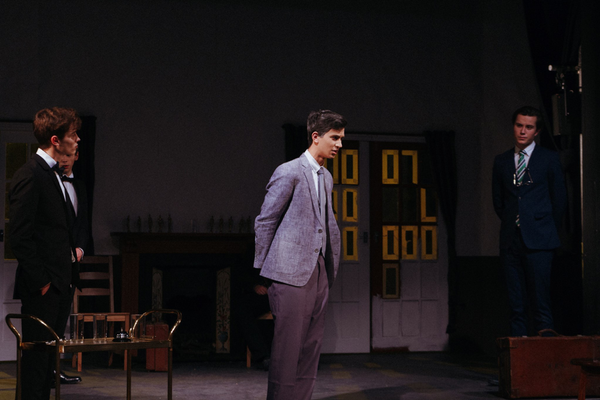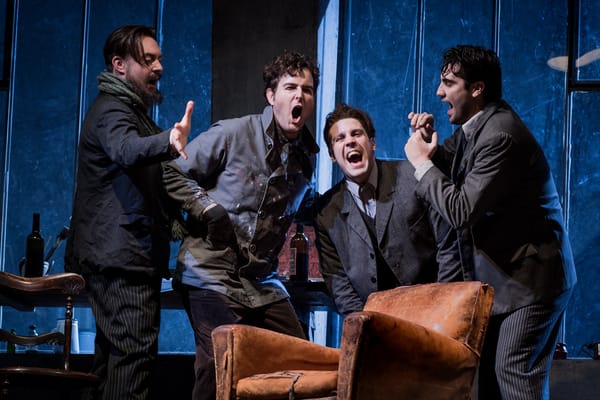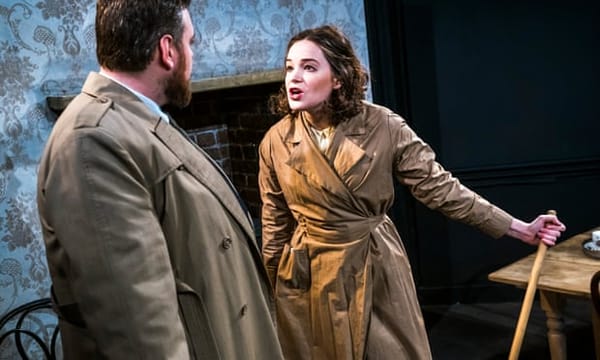Carmen
Thoughts of an opera novice on the Royal Opera House’s version of a classic

Don Jose, a young soldier on duty in Seville is seduced by the free-spirited Carmen as she attempts to escape being taken to prison. This marks the beginning of a tumultuous relationship between the two, driven by Carmen’s stubborn personality and Jose’s wild possessiveness. When it premiered in 1875, Carmen failed to find major success. Perhaps because, at the time, its subject was considered shocking, with titular character Carmen’s overt sexuality breaking societal taboos. It soon found fame, however, growing to become one of the most performed operas, a regular in the calendar of the Royal Opera House where it is performed in the original French with English translations appearing on a screen above the stage.
Director Barrie Kosky’s version of Carmen is interesting to say the least. As someone new to Carmen, and to opera as a whole, many elements of Kosky’s work were hard to grasp. Carmen appears throughout in several contrasting costumes, including a garish bright pink ensemble and, at one point, a gorilla suit. I later read that this was intended to represent Carmen’s constantly changing nature. In retrospect, this seems clever and clearly was an inside joke to the regular opera-goers in the audience, familiar with the story and seeking something new. To the novice, though, it felt out of place and confusing, especially as it clashed so spectacularly with the rest of the cast and the staging. The muted colours of the set are an odd choice for sunny Seville and the vibrance of Carmen’s new lover Escamillo, a dashing bullfighter, is clear in his music, yet his presence on stage remains rather drab, unable to brighten the predominant greys of the set.
The stage is taken up almost entirely by a giant stairway- the site off all the action. Its an interesting idea and brings a certain depth to the staging, especially in the opening scenes, where a waiting company of soldiers is spread out across the stairway. They sing and dance up and down the stairs, allowing the cast to be spread out in front of the audience. However, as we move into Act 2 it begins to feel out of place, especially in the final scenes. The final physical confrontation between Carmen and Don Jose takes place in a corner of the stage and it fails to have the expected impact.
It goes without saying that the music is amazing. Bizet captured the intensity of characters’ emotion with his music and its that which has led to Carmen ’s lasting impact. The ROH’s orchestra are flawless and the performances by leads Tanja Ariane Baumgartner (Carmen) and Brian Jagde (Don Jose) are impressive to say the least. There’s surely a lot here to love for those familiar with Carmen looking for an interesting take. And even for the novice, Bizet’s opera is impressive, although Kosky’s vision may not be the best introduction.
-3.5 stars







